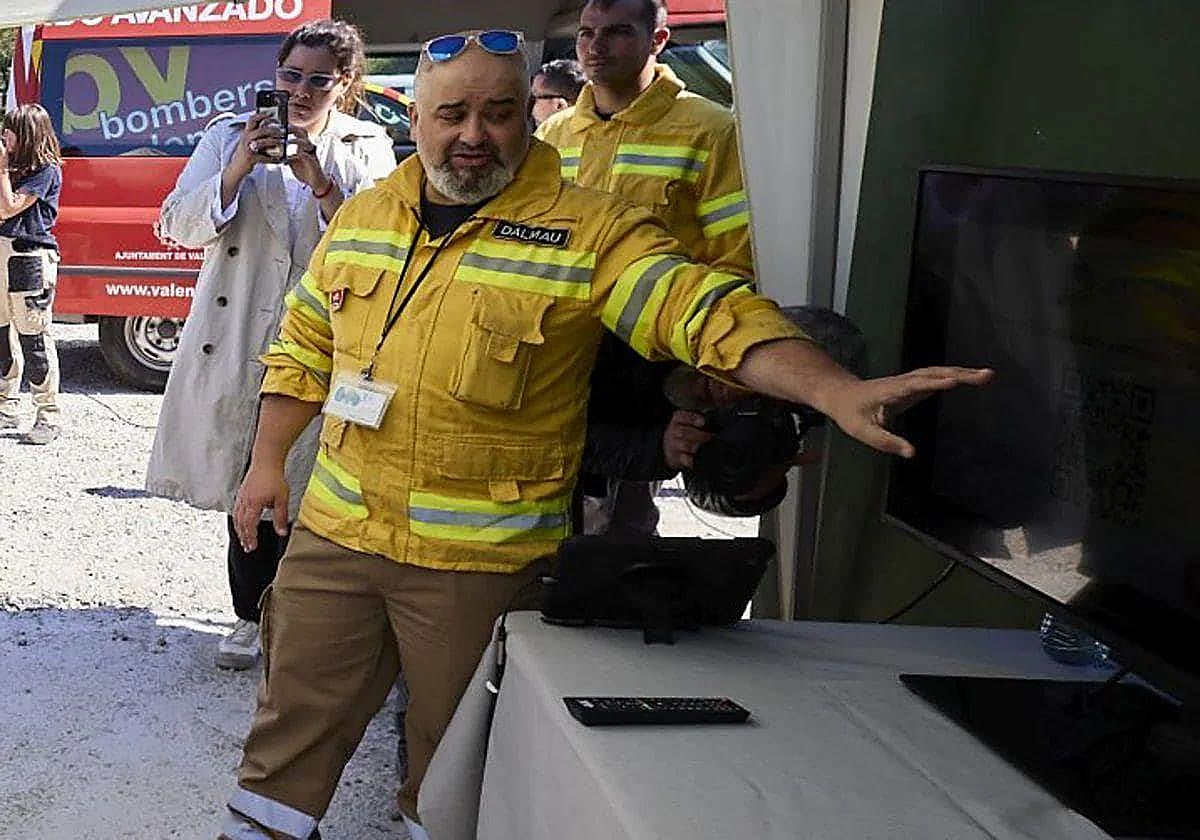Emergency expert calls on Spain to install Japanese-style warning systems to avoid disasters like the 'Dana' in Valencia
Forestry engineer Ferran Dalmau has also pointed out the need to reduce risks with artificial flood zones, storm reservoirs, the diversion of flows, channels intercepting ravines and the creation of woodlands to absorb water
Lola Soriano Pons
Valencia
Wednesday, 20 November 2024, 16:11
Spain should consider installing public address systems such as those used in Japan to warn of tsunamis or earthquakes, according to emergency expert Ferran Dalmau. The director of the environmental engineering company Medio XXI, which installed water cannons in El Saler to prevent fires, said such a warning system could help avoid catastrophes such as the 'Dana' weather event which killed more than 200 people in Valencia at the end of October.
"A powerful public address system is needed, a kind of anti-aircraft alarm that alerts the population, as happens in Japan, where, depending on whether the warning is for a tsunami or an earthquake, a specific sound is made and the population is warned sufficiently in advance to go to the nearest mountain or a high area," Dalmau said. "These warning sounds are connected to the Japanese emergency system and warnings are also given for other emergencies," he added.
He pointed out that in Japan these two natural disasters (tsunami and earthquakes) are frequent and "they have found a way to adapt". Not only have they adapted infrastructure, but also warnings, and in the case of Valencia, the same should be done for areas at high risk of floods and fire, Dalmau said.
"It is really about adapting the country to permanent risks. To learn to live with risk, but seeking the least impact," he said. In addition to strong public address systems, he pointed out that "we have to stop building in flood-prone areas and consider projects to reduce the risk in already built-up areas".
Flow diversion and storm reservoirs
Dalmau pointed out an example of the need to "generate artificial flood zones, diverting flows to certain areas". In Alzira "they have invested several million euros in creating an interceptor channel for the waters of two ravines, the Murta and the Casella, which historically always flooded the population of the Júcar basin, and in this episode they have had no problem", he added.
He also said it is important for municipalities to have their municipal action plan for flood risk at the ready.
Another important issue Dalmau pointed out is the need to "invest in infrastructures, because the impact that has been produced would have been less if there were anti-flood infrastructures such as flood control dykes, more reservoirs, sustainable urban drainage systems (known as suds) and storm tanks".
In the case of storm tanks, Valencia city council built one in El Saler with an investment of 2.4 million euros and with a capacity to store a thousand cubic metres of water in order to prevent the rainwater, the most polluted, from reaching the Albufera. The most polluted rainwater reaches the Albufera, but last summer Valencia mayor María José Catalá demanded the ministry of ecological transition build those that are still pending and which have to run parallel to the Pista de Silla.
In this list of infrastructures that avoid risks, Dalmau also included artificial flooding areas, "which consists of diverting water to agricultural areas or areas not used for cultivation that may flood at any given moment and this, at the same time, contributes sediment to these fields".
The engineer and emergency expert also pointed out the priority of forest hydrology work. "The amount of water that flows down a basin also depends on the vegetation in that basin because forests intercept water, favour infiltration and this prevents it from flowing over the surface," Dalmau said.
For this reason, he said it would be important to "analyse the basin of the river Magro, the Turia and ravines such as El Poyo and look at the vegetation and seek a balance between the risk of forest fires and the risk of flooding, because you can bet on forests that are less prone to fires and have high infiltration".
He said the impact of the 'Dana' storms would have been less "if more infrastructure had been put in place. Just as forest tracks and firebreaks are used to prevent fires, in the case of floods, infrastructures, the application of forest hydrology and warnings are important".
The expert also pointed out it is vital "to generate a culture of civil protection". "The mayors, municipal technicians, the Generalitat and the public have to be aware of the situation we are in," Dalmau said. He pointed out that five days before the 'Dana' state meteorologists had already warned that a storm was coming which could be historic, and "there is a plan approved by the Generalitat which warns who has to give warnings".
Dalmau also sent a message to climate change deniers: "Climate change is a scientific fact. The global temperature of the atmosphere has risen by 1.6 degrees. That is a risk for more fires and, in addition, more water is evaporating from the oceans and seas and there is 10% more precipitable water".
He also pointed out that on the day of the 'Dana' "we must not forget that in Alginet and Carlet there was a category two tornado". He said policies must be changed as climate change is a fact. While acknowledging that flooding in October would have been unavoidable, he said: "but if level three had been declared, people could have been made safe".
